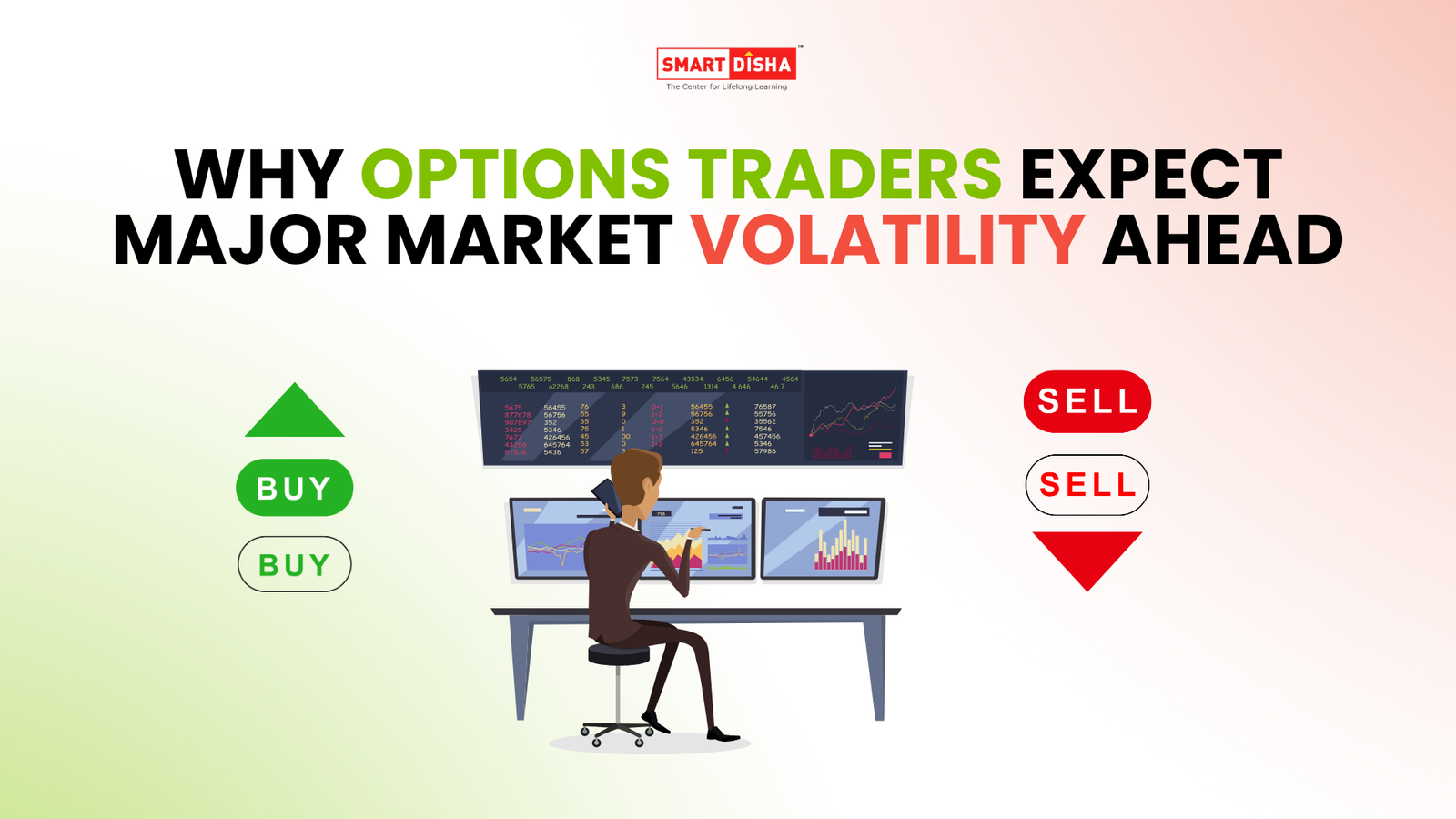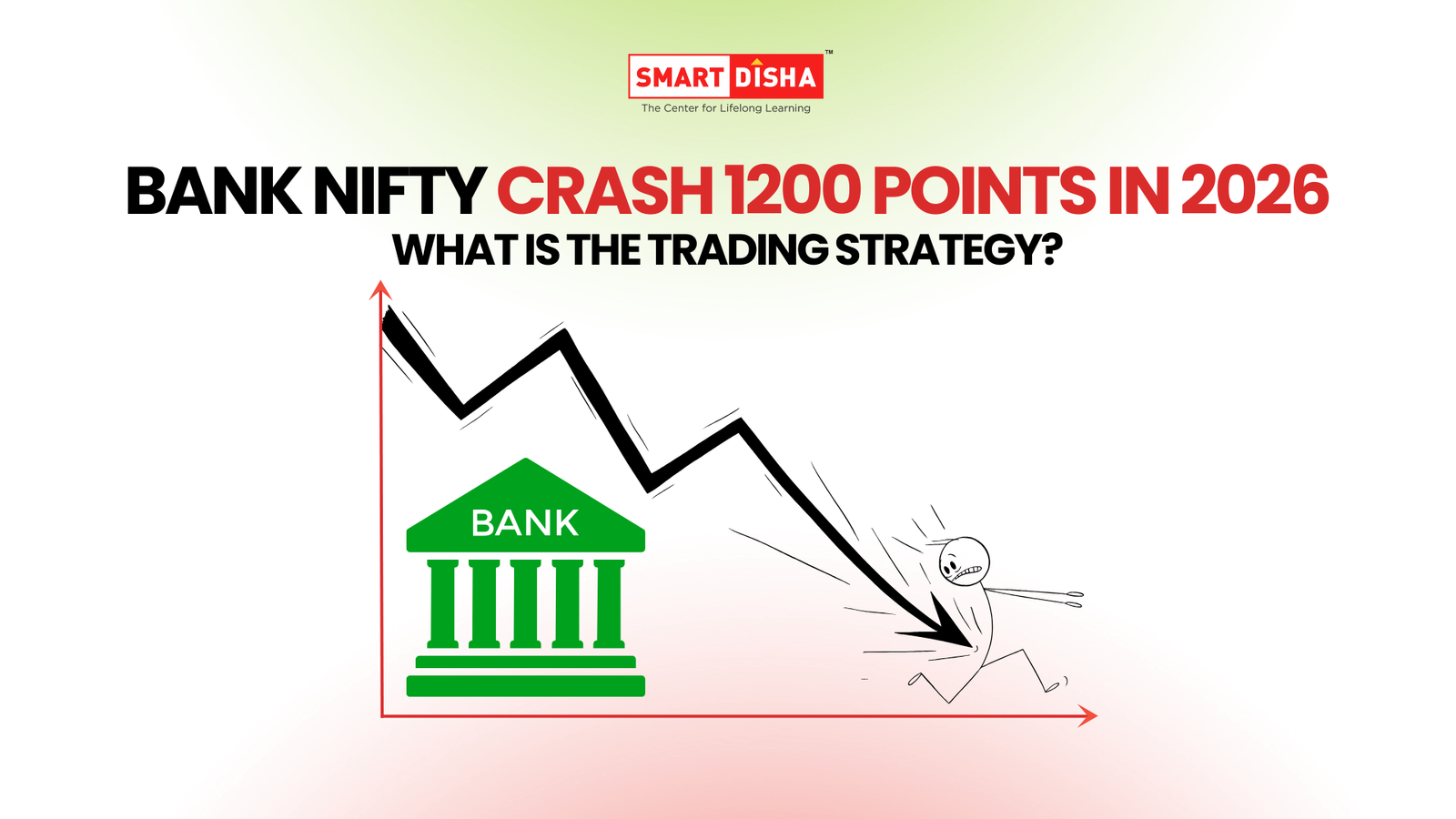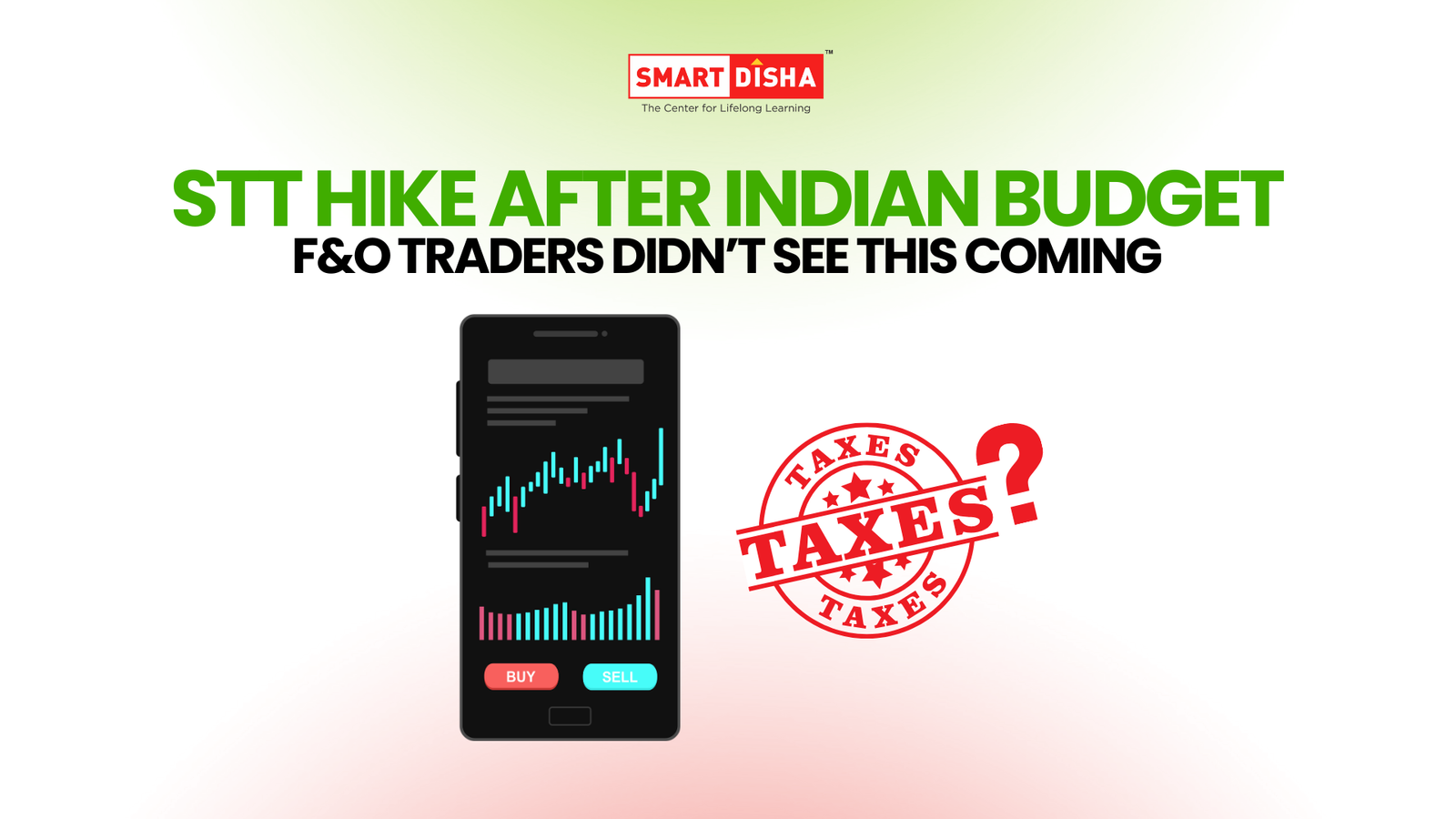The last few weeks have looked unusually calm, but the options market volatility tells a different story
Beneath steady index charts, derivatives data shows a quiet rise in implied volatility, subtle shifts in open interest, and positions building on both sides
In short, traders are gearing up for a move that could catch many off guard
Let’s break it down, step by step
What Exactly Are Options Traders Seeing?
Options traders don’t just predict direction, they trade on movement
So when they suddenly start buying both Calls and Puts in large volumes, it’s a clue:
they’re expecting something big to happen, even if they don’t know which way yet
If you open any broker’s OI data today, you’ll notice:
- Heavy positions building on both sides of key strikes (for example, NIFTY 25,000 CE and 24,500 PE)
- Rising implied volatility (IV) meaning traders are willing to pay more for options
- A slight uptick in India VIX, even though the index itself hasn’t moved much
This setup low market movement + rising IV + balanced OI on both sides usually appears right before large directional breakouts
Example (Visual Breakdown)
| Indicator | September 2025 | October 2025 | Interpretation |
| India VIX | 11.2 | 13.4 | Volatility expectation rising |
| Avg. IV (NIFTY ATM Options) | 12 % | 15 % | Traders pricing in larger swings |
| OI Change (CE + PE Combined) | +8 % WoW | +19 % WoW | Position build-up before move |
Why Are These Signals Appearing Now?
Three main factors are driving this pattern:
1. Global Uncertainty Is Back
U.S., China trade tensions, rising crude oil, and policy uncertainty have returned to headlines
When global risk rises, Indian options traders hedge early
2. Retail Options Activity Has Exploded
More than 12 crore new demat accounts have been opened in India, with retail traders increasingly active in weekly expiries
That activity fuels short-term volatility
3. Pre-Event Positioning by Institutions
Large players are quietly hedging ahead of Budget 2026, global elections, and SEBI’s upcoming derivatives margin reforms
These preparations always start in the options market long before they hit the news
What You Can Learn as a Trader
Even if you don’t trade options, understanding these signals helps you time the market better
| Signal | What It Usually Means | What to Do |
| IV rising, Index flat | Traders expect volatility soon | Avoid over-leverage, hedge positions |
| High OI on both CE & PE | Uncertain direction | Stay neutral or use straddle alerts |
| VIX rising fast | Fear or expectation of large move | Tighten stop-losses, reduce exposure |
The Example That Explains It All
Imagine NIFTY sitting quietly at 25,000 for a week
But you notice this:
- 26,000 CE and 24,000 PE both show heavy build-up
- IV moves from 13 → 15 %
- VIX ticks up from 11 → 13
That combination often acts like a coiled spring
When one side breaks, whether it’s a breakout or breakdown the move is fast and large
Smart traders read this early; others get caught reacting late
What Smart Traders Are Doing Now
- Tracking Open Interest Heat-Maps Identify zones where OI builds fast; those are likely battle points.
- Watching IV-vs-Price Divergences When IV rises without price movement, volatility is being priced in.
- Using Defined-Risk Strategies Instead of naked calls or puts, smart traders use spreads and stop-loss-based setups.
FAQs
1. What does a rise in options volume mean?
It usually signals increasing participation or hedging ahead of volatility.
(Source: NSE Derivatives Reports)
2. Why is India VIX important for traders?
It reflects market expectations of volatility; a sudden rise hints at strong upcoming moves.
(Source: Economic Times – Understanding India VIX)
3. Can beginners use option-chain data effectively?
Yes, even passive traders can read OI build-ups to identify breakout zones.
(Source: NSE Option Chain Guide)
4. Where can I learn to read volatility and open interest data?
Structured courses like Smart Disha’s Advanced Options & Risk Management program cover it step-by-step.
(Source: Smart Disha Academy Courses)
Final Thought
Options data is not about predicting where the market goes
it’s about preparing for how much it might move
When volatility whispers before headlines shout,
those who listen early make wiser, calmer trading decisions
That’s exactly what Smart Disha Academy teaches,
not chasing trends, but understanding the market’s rhythm before everyone else




